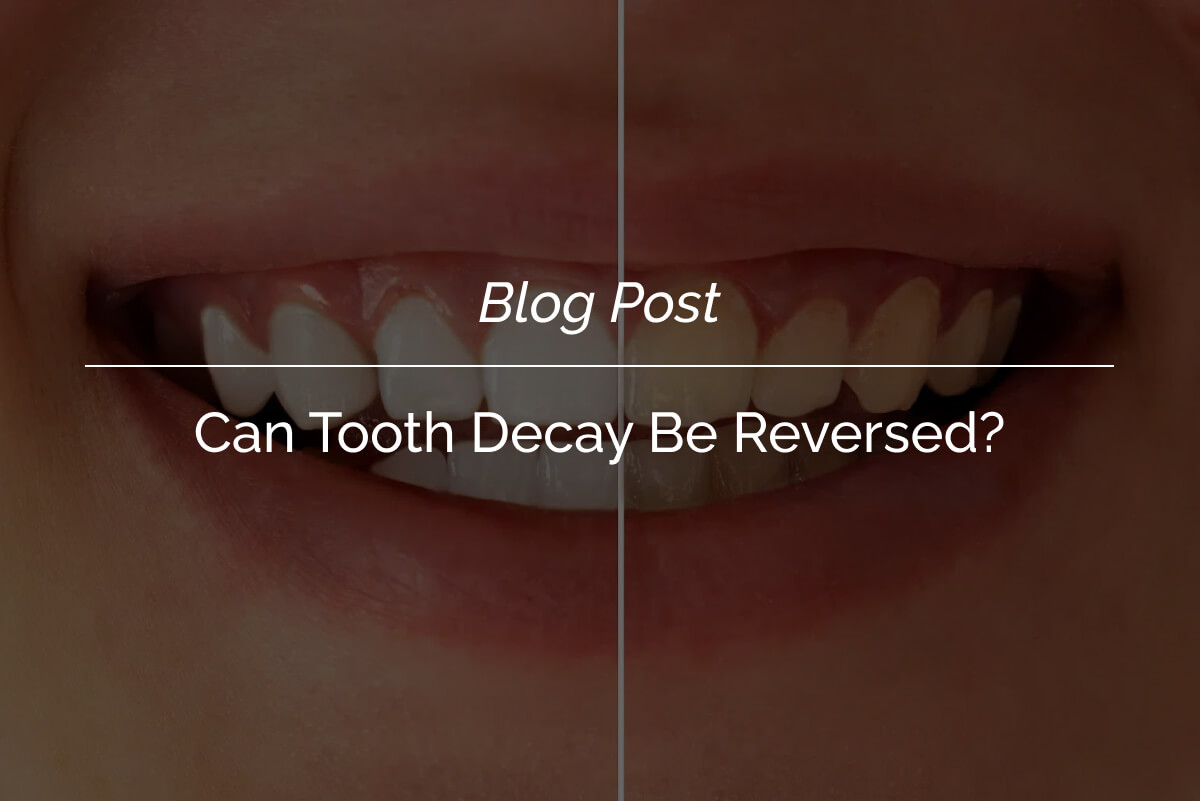Tooth decay (cavities) is the damage to a tooth caused by the buildup of dental plaque in the mouth, which turns sugars into acid that attacks the teeth. Our mouths are full of bacteria – some good, some bad. The harmful bacteria plays a part in the tooth decay process, promoting the production of acids that eat away at the tooth enamel.
In order to combat these acids, we have minerals in our saliva (such as phosphate and calcium), as well as fluoride products. The mouth constantly goes through a cycle of losing and regaining minerals, but when we lose too much, we get cavities. The question is: is tooth decay permanent?
How do cavities develop?
When the teeth are regularly exposed to acid, the enamel starts to lose minerals. White spots might appear where the minerals were lost – this is an early sign of decay.
For most people, the saliva we generate and the fluoride found in toothpaste and water helps to replace minerals. However, people that snack regularly are exposing their teeth to too much acid which causes demineralisation, followed by enamel decay and then decay of the dentin (the soft tissue underneath the enamel). The final stage is pulp decay, and a painful abscess may develop if the bacteria spreads below the pulp.
Treatments for early stage tooth decay
The good news is that, when caught early on during the demineralisation stage, tooth decay is usually reversible. At this point, good oral hygiene is imperative to getting your teeth’s health back on track. In order to restore the minerals and halt or reverse decay, you should be brushing and flossing regularly, and frequently exposing your teeth to fluoride to help make them strong again.
Remember that tooth decay is only reversible when caught in the early stages. Once decay reaches the dentine level, this is irreversible and your dentist will explore treatment options such as fillings, crowns, root canals and extractions with you.
Prevention is better than cure
You can’t guarantee you’ll never get cavities, but you can significantly reduce the chances with good oral hygiene practices. The following is essential to prevent the onset of decay:
- Brush your teeth twice a day using a fluoride toothpaste
- Floss your teeth every day to prevent the buildup of plaque between the teeth
- Drink fluoride water to increase your exposure to fluoride
- Ask your dentist about other fluoride products
- Reduce the amount of sugary foods you consume
- Brush your teeth after eating a meal or a sugary snack
- See your dentist every 6 months for a thorough check-up and clean
Call or email our dental practice
Staying on top of your oral hygiene is the best measure to keep your teeth healthy and keep cavities at bay. Contact King Street Dental if you have any questions related to your own oral health, or book an appointment. We’re welcoming both new and existing patients, and you can reach us on (03) 8842 4506 or [email protected].
